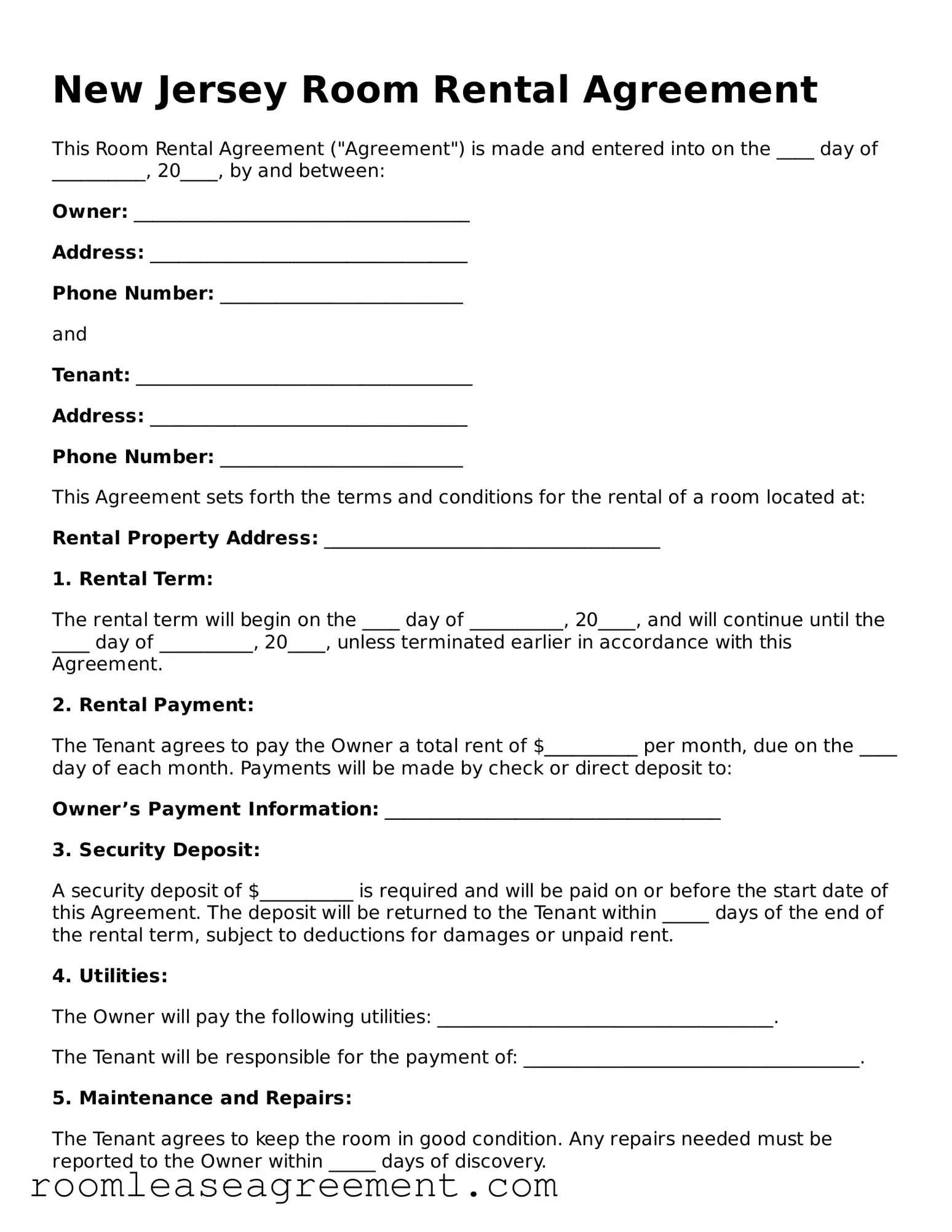New Jersey Room Rental Agreement
This Room Rental Agreement ("Agreement") is made and entered into on the ____ day of __________, 20____, by and between:
Owner: ____________________________________
Address: __________________________________
Phone Number: __________________________
and
Tenant: ____________________________________
Address: __________________________________
Phone Number: __________________________
This Agreement sets forth the terms and conditions for the rental of a room located at:
Rental Property Address: ____________________________________
1. Rental Term:
The rental term will begin on the ____ day of __________, 20____, and will continue until the ____ day of __________, 20____, unless terminated earlier in accordance with this Agreement.
2. Rental Payment:
The Tenant agrees to pay the Owner a total rent of $__________ per month, due on the ____ day of each month. Payments will be made by check or direct deposit to:
Owner’s Payment Information: ____________________________________
3. Security Deposit:
A security deposit of $__________ is required and will be paid on or before the start date of this Agreement. The deposit will be returned to the Tenant within _____ days of the end of the rental term, subject to deductions for damages or unpaid rent.
4. Utilities:
The Owner will pay the following utilities: ____________________________________.
The Tenant will be responsible for the payment of: ____________________________________.
5. Maintenance and Repairs:
The Tenant agrees to keep the room in good condition. Any repairs needed must be reported to the Owner within _____ days of discovery.
6. Termination:
Either party may terminate this Agreement by providing a written notice of at least _____ days prior to the termination date.
7. Governing Law:
This Agreement will be governed by the laws of the State of New Jersey.
8. Signatures:
By signing below, both parties agree to the terms of this Room Rental Agreement.
Owner's Signature: ________________________ Date: _____________
Tenant's Signature: ________________________ Date: _____________
